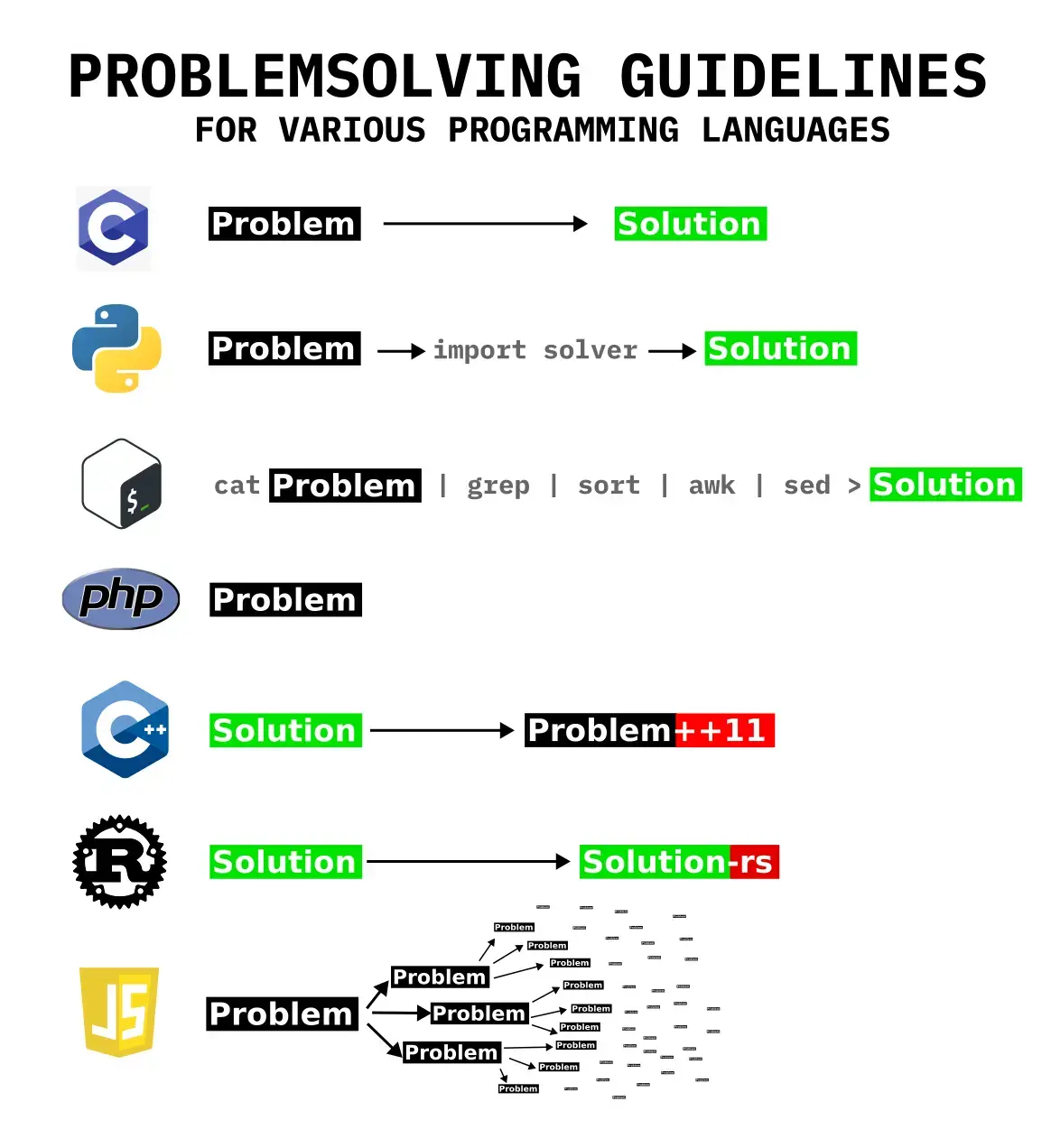C could just be a blank and you have to bit blit the arrow on yourself.
Programmer Humor
Post funny things about programming here! (Or just rant about your favourite programming language.)
Rules:
- Posts must be relevant to programming, programmers, or computer science.
- No NSFW content.
- Jokes must be in good taste. No hate speech, bigotry, etc.
Actual C: Problem → Segmentation fault
Actual Problem: C → Segmentation Fault
Actual Problem: C → Segmentation Fault?
C:
Problem → return Solution;
C++:
Problem →
const [auto]&& (Problem&& problem) noexcept(noexcept( Solution<Problem>{}(std::forward<Problem>(problem)) )) { return Solution<Problem>{}(std::forward<Problem>(problem)); } -> decltype( Solution<Problem>{}(std::forward<Problem>(problem)) )
But this doesn't return the Solution. You don't invoke the lambda.
(Or does C++ have implied returns now? Last I heard there was implied move)
Actually I do; it's the {} that initializes the lambda, and the parenthesis after invokes.
That said, it would have been fun.
C:
return *(solution_t*)&problem;
Maximum optimization!
Didn't see any mention yet, so...
Useless use of cat!
I’ve seen this before but don’t accept it myself. There are cases where you just wanted to cat. In this case, maybe to review the problem. Then you want to extend the command. Preserving it in the next commands where you start stacking on pipes is useful since it can be fewer strokes and maintain a habit.
